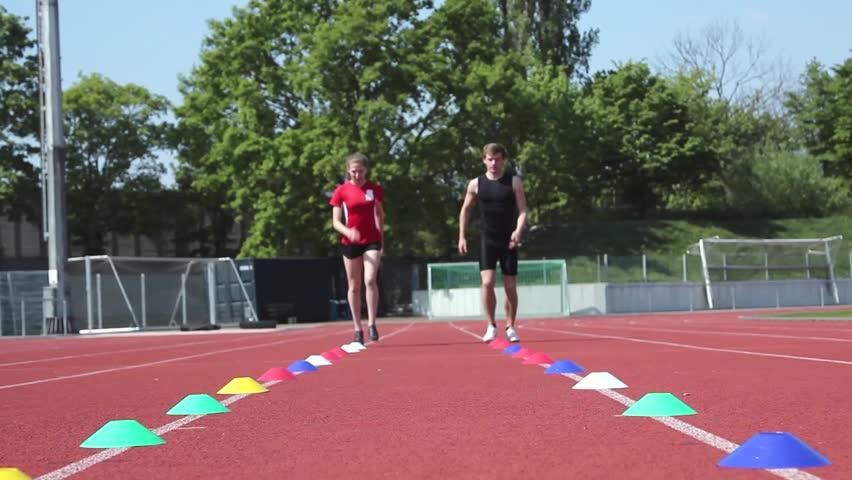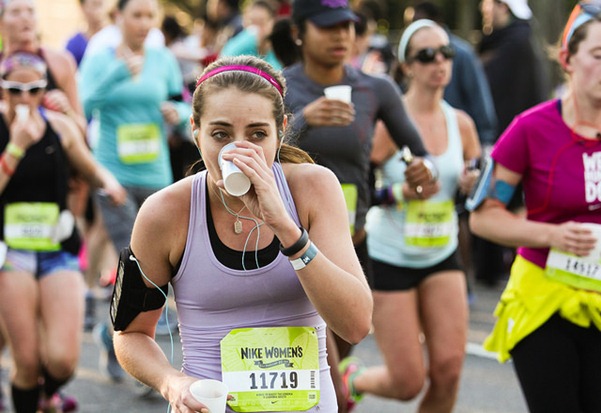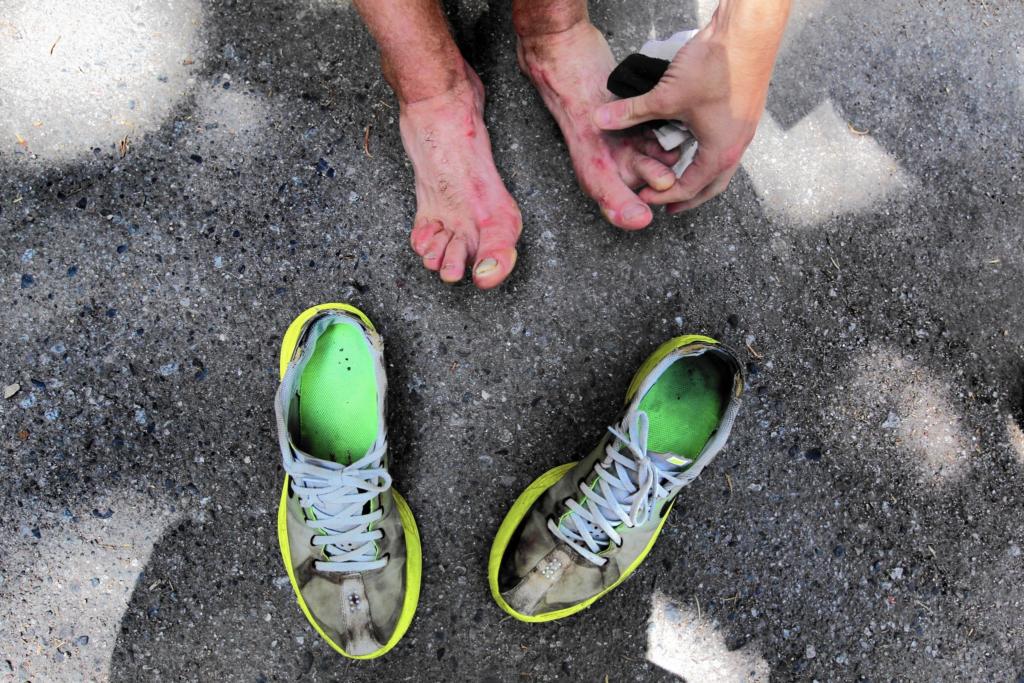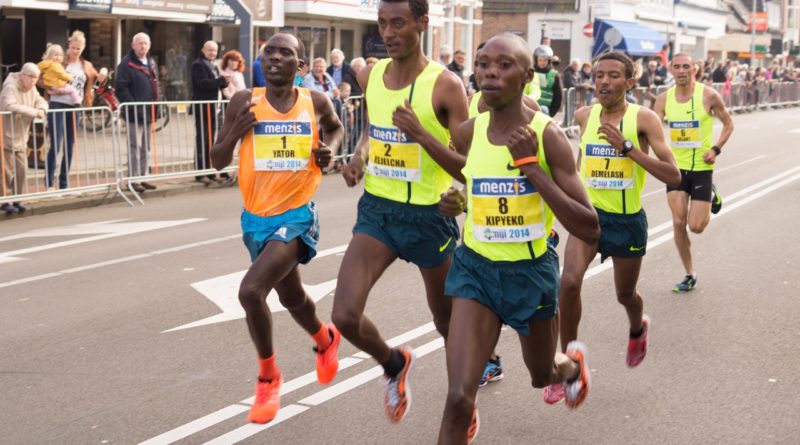Tips for Marathon Success. Handful Guide to Every Marathoner for Better Results!
Marathon Tips To See Better Results
Success in every marathon requires tremendous training and clear execution. Marathon training plan is key to success.
In this article, the article mainly emphasis on some of the top mistakes to avoid in order to become successful in this chosen marathon sport.
The mistakes marathoners should avoid before and after they compete in their chosen sport will result in several things to the athlete.
In this case, a marathoner who wants to take risky challenges despite of what some veteran runners will tell him is stubborn.
It’s best to avoid mistakes by knowing what some of the them are is a start.
Health experts suggest simple mistakes can save time, loss, and injury.
Marathon Tip No.1: Focus on Avoiding Mistakes
The reasons to avoid risks is good training and preparation. During a runner’s career, s/he will feel the need to run marathons.
Training and preparing for longer races is the goal at times.
Mistakes marathoners should avoid are steps to make sure you are well prepared as a health conscious runner.
In an article review by Christine Ruff of the Very Well health website, she claims 13 mistakes marathoners could have avoided but didn’t.
That’s where marathoner tips comes into play. We will discuss a few in more detail
For instance, a marathoner is great at both the long and short distance events.
It’s good to run 5K to 10K races in various cities before racing the next level. It’s also costly in many ways for some athletes.
Marathon Tip No.2: How Prepared Are You Mentally?
As a runner, how prepared are you mentally to run and cover such a long distance consistently is very important.

There are some key traits which professional marathoners exhibit like focus, strength, resilience, vision, preparation, trust and openness. One doesn’t need to be born or gifted with these traits but the good news is you can learn to be mentally tough through your running practice and workouts daily.
These characteristics of a mentally tough runner can be developed with consistent workouts before planning for a real one.
Marathon Tip No.3: Focus on the finish line
Nevertheless, a sense of nervousness will be felt before any sporting event. This is human nature. If you are the runner in a race and you aren’t ready for it, you’re bound to feel the anxiety.
This will also be due to the environment you are not used to comparably.

They can come from seeing more spectators, more crowds, the heat, the water cool-downs, the water cups, and even dealing with more competitors in the race.
These are products of an unknown environment if you never ran a marathon or half a marathon at all! Focus on the finish line. This is your goal.
Mistakes marathoners should avoid are kind of mistakes such as not setting their mind to the goal of the race. Visualizing the finish line is one way to do this.
Marathon Tip No.4: Practice makes you a complete marathoner
“…Complete a shorter race first,” is what’s recommended by health experts. When one focuses on running a full marathon and s/he has never progressed to the runners should progress to the distance first to get used to it.
To run a marathon first is the wise thing to do, but avoiding certain mistakes is more important.

Any person who hasn’t run a marathon, yet wants to run a full marathon, just run the “halves” so you can get used to those first. Run them several times.
It’s a slow pace, but not if you run them royally and whole-heartedly. Running races like a 5K or a 10K is a good way to begin.
Then it’s suggested to move up to the “marathon” challenge. Those runners should average 13.1 miles for every race they enter.
This will mentally prepare them and physically prepare them as well for any race. Luff claims this is a good challenge for any athlete.
Marathon Tip No.5: Ignore the butterflies
When its the first time to ever race a marathon distance, you will feel the same ‘butterflies’ in your stomach regardless.
But, at least you will have ready your physical body to the distance because of earlier races.
The fact is that the body will not go into “shock mode,’ it’s the main reason you will succeed in your first time marathon.
Marathon Tip No.6: Don’t Ignore rest days
Don’t make the mistake of ignoring any rest days. Instead, you can cross train. Cross-training is easy for marathoners who want to change-up their training.
It’s the day you spend when you are not going to run. Your body will ask for this break because of the sore muscles and if you have pain, then it’s worth the day off.

Risking an injury such as stress fractures, shin splints, and overall muscle soreness around your knees and thighs can give you those red-flags.
Running daily should still keep you motivated so do not lose sight of this regimen.
Leave one or two days for free days to do another activity. This complements those rest days you’ll need without over-training your body.
Therefore, do not ignore the rest days. Go swimming and soothe the muscles. It’s one cross training activity that will work your muscles by soothing them while still receiving a good, but less intense workout.
Marathon Tip No.7: Don’t forget to track your workouts
An excellent method to make sure you are tracking your workouts is to keep log everything you do when you are training. Write it all in a notebook or journal log.
This will prevent you from over-training or under-training. Nevertheless, you’ll also see the progress you’ve met during the time of your training workouts before racing those marathons.

You write your distance and times on a calendar. Furthermore, you can jot down the starting and finishing times, the distances, the place or site you’re working out at. Jot down how you felt before and after your workout too.
In other words, how did you feel before and after the workout. This will keep you informed of all aspects of your training before and after your marathon most importantly.
Today, there’s fitness trackers and apps you can download for your tablet or PC to fill in each area of importance.
If you have a social media account, writing it all out to the world is another way some runners have collaborated to each other to keep up with certain goals. Remember, share it only with those you trust.
Marathon Tip No.8: Runners prepare for a winning mindset
Runners in marathons should get into the mind-set of competing in regular marathons. There are races which do have a cut-off time. To finish those races in three hours you need to prepare for them.
In fact, are you confident that you can finish the races you want to enter? You need confidence when entering any sporting event, especially a marathon.
Three hours is the average time limit for marathons so make sure you can do cross the finish line within that limited time.
There are marathons that are a slower pace. There are some that finish in the time limit of a full marathon.
Training and preparation, the race strategy needs consideration before the race. Don’t sabotage your training without any runner’s goals.
Runners who’ve raced dozens of marathons, seem to think this one is “simply another race.” Those who’ve successfully completed the 26.2 distance races may think the same.
Marathon Tip No.9: Preparation for Every Race
Prepare for every race as if it’s your first. In other words, don’t think just because you think 14 miles is not long.
Because you’ve run double the amount a dozen times, it’s still a good run which needs all your effort.
Therefore set-up for a win and aim for that finish line during your race day.
Marathon Tip. No.10: Hydrate and nutrition
Some runners can get away with not rehydrating during training or running races.
Ignoring hydration and nutrition properly can cause cramping in the legs, even tear a ligament, or cause a runner to faint before, during or after a race.
Veteran runners and health experts recommend hydration for marathoners because of the benefits.

“Drinking to thirst” is the way in remembering to hydrate. You’ll get thirsty when you run longer races and marathons.
Before and after running is the best time to hydrate.
When you go to the restroom, check the color of your urine. Your body is hydrated if your urine is light-yellow.
Pre- and post-workout by hydration with water or dehydrating beverage is extremely important.
Marathon Tip No.11: How Long is your race?
Two things you need to ask yourself when considering the process of a safe marathon are the following two questions. First, consider how long your race is (i.e. 5K, 10K, or more…).
The intensity of any race is something to consider. Will you’ll be racing for fun or for competition?
Therefore, go by your level of running and what type of race you’ll be doing. You should know your body well enough from past races.
It’s not as important for some, but the common mistakes marathoners should avoid is the mistake of not drinking water and replenish during races too.
If it’s your first marathon, then you know its critical before and after.
Marathon Tip No.12: Hydrate Often
Anything more than 15 miles should give you a fair warning to hydrate your body before and after. Additionally, eating before a half marathon may give your stomach aches and cramps.
This is a simple mistake with rehydrating for some half marathoners. Eat and drink after your races since this important.
Replenishing your body is important for your muscles, your mind, and your body, overall.
Putting some protein and carbohydrates back into your body is a common denominator after any race just so as you don’t over indulge on the food you get it from.
Bistro MD voted best tasting diet program! Pick your meals and save today!
Marathon Tip No.13: Your race day strategy
No matter what your goal is for your half marathon, you must have that race day strategy for a near perfect run. Actually, don’t attempt to race on your race day with no strategy.
Your racing day strategy should keep you in line with your physical and mental mindset. Pacing is important. This is regardless of the complications of the race or its simplicity.
The pacing guidelines are for the running environment or terrain you will be running in.
With the following: levels of “exertion, hydration, and the expected outcome of the race, you will benefit from a pre-planned race with the varied tempos and pace in mind.
All plans can calm your nerves; hence, practice makes perfect! All this will keep your race day running smooth.
Therefore, ask yourself is how will you run your race? Will you run the race casually or simply have fun with it while you pace yourself to the finish line?
Are you going for a first place ribbon and trophy or not? These questions can help you with your race day strategy ten-fold.
Marathon Tip No.14: Do not ignore pain
Do not ignore your pain if you feel it set on before, during or after your half marathon training workouts. Naturally, every runner may feel a little sore around the muscles.
A signal from your body alerting you with more extreme pain can now affect your walking and running because it feels more extreme.
Your body is telling you to pay attention to that extreme pain. Normally, the treatment is as simple as taking an aspirin with a hot shower following and resting your body.
Also, taking a break from running all together can help. This, in fact, will keep you from injuring yourself further, thus allowing for time to rest more later.
Ignoring the injury or soreness can make it worse, or more so, become a new injury. Some ways to handle injuries such as sore muscles are putting ice packs on the sore area.
A bag of frozen vegetables such as peas or corn can help sooth the sore pains of muscles. A tennis ball or even a frozen, but filled, water bottle will work as a rolling tool for sore muscles as well.
Marathon Tip No.15: Foot Blisters and Chafing
There is one which distance runners forget is about the prevention of foot blisters and chafing.
Now, this may sound little inconvenience to some, but for some runners it may become disaster on the race day if you have done everything else right.
Foot blisters may start after some time with small discomfort while running but it may reach upto a level where your shoes soaked in blood due to foot blistering.
Chafing is another problem where it is caused by repeated motion, specifically your skin rubbing against the fabric or other skin.

Professional marathoners prevent this by wearing synthetic materials that wick moisture away. They also apply a thin layer of lubricants or Vaseline or Bodyglide on the vulnerable areas.
The good news is with a little preparation, both foot blisters and chafing kind of mistakes marathoners should avoid.
It is also equally important to understand well the vulnerable places or the hotspots where blisters and chafing can happen
Marathon Tip No.16: Stay motivated and don’t quit!
Every athlete has them. The good days and the bad days are part of the competitive drive many runners get regularly.
While you are running or training, you may feel your losing “steam” at some point during or after your workouts.
This is a negative mind-set, therefore you can ignore it. In fact, it can mean you need to rest your mind and your body.
The days you fight that battle are the days you should work less intense running exercises and rest your body. Do not give up though. You may want to quit during a race too, but don’t give in and don’t quit.
When you dig in deep into your tough attitude, you’ll be surprise at what you can do with a positive mental mind-set.
“Pump yourself” up and visualize the finish line because quitting is never an option! It will take time to have this mind-set.
Practice the positive attitude in everything you do and you’ll see what the mind and the body can believe, your mind and your body can achieve, as one Norman Vincent Peale once said.
Marathon Tip No: 17: Going the distance
Finally, when you follow these tips to know the common mistakes half marathoners should avoid. Take note of the tips that follow by practicing them pre-marathon and post-marathon days.
From the veteran runners and health experts, you could be heading for greatness in marathons by complying with certain training techniques.
In summary, getting much rest, great hydration, smart nutrition, full training and workouts, a positive mind-set, and overall strategic planning for race day.
Conclusion:
You’ll be on your way to a great marathon every time if you are really mindful about mistakes every marathoners tries to avoid!
You’ll also learn to be more health conscious when it comes to your mind and body before and after any race, regardless of the distance.
Hope you found these points helpful. So when are you planning for your next marathon?
